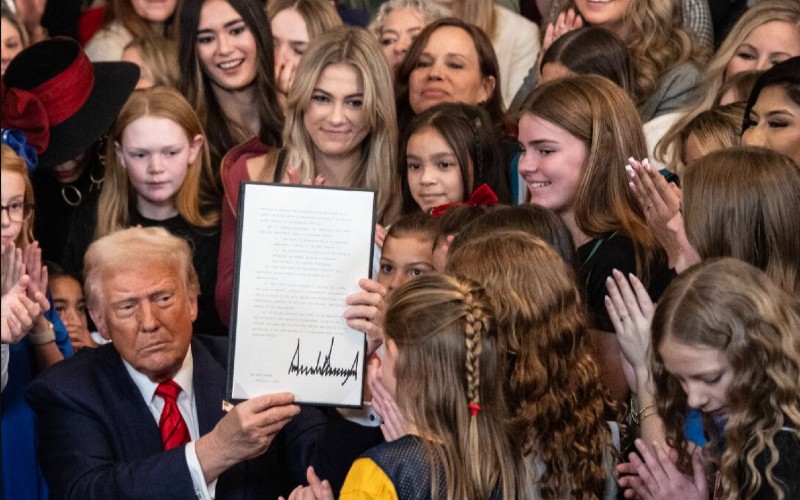In a conviction she has vowed to appeal, Le Pen was found guilty of embezzling European Parliament funds through her political party, National Rally. In particular, Le Pen and 21 others were convicted of using EU funds to pay the salaries of people who were on the payroll for National Rally, including a body guard and a personal assistant for Le Pen.
The embezzlement allegation and her conviction come at the same time polls showed she was a top contender for president in 2027, when President Emmanuel Macron is term-limited.
 President Trump, unsurprisingly, reflected on his own legal fight after he learned of Le Pen’s conviction.
President Trump, unsurprisingly, reflected on his own legal fight after he learned of Le Pen’s conviction.
“She was banned from running for five years and she’s the leading candidate,” Trump told reporters. “That sounds like this country.”
“It seems very convenient that a judge with this conviction, at the time that it is, would rule her ineligible to run for office,” Jenna Ellis, an AFR morning host, tells AFN.
Like many others, Ellis can easily connect Le Pen’s legal fight to another firebrand nationalist, Donald Trump. From the Mar-a-Lago raid for classified documents, to a New York trial over falsified business records, Trump fought four criminal cases at once and a staggering 88 criminal charges.
 Much like nobody is claiming Le Pen is innocent, nobody claimed Trump didn't possess sensitive documents. The claim by many is a two-tier justice system, like the classified documents in Joe Biden's garage.
Much like nobody is claiming Le Pen is innocent, nobody claimed Trump didn't possess sensitive documents. The claim by many is a two-tier justice system, like the classified documents in Joe Biden's garage.
In the case of Le Pen, many in France have not forgotten that Christine Lagarde, a French finance minister, escaped any court sentence in 2016. She was convicted of mishandling an out-of-court settlement with a business tycoon.
 Ellis also personally experienced political lawfare as Trump’s personal attorney. The other side eventually came after her, too, as political punishment for representing him when he challenged the 2020 election results.
Ellis also personally experienced political lawfare as Trump’s personal attorney. The other side eventually came after her, too, as political punishment for representing him when he challenged the 2020 election results.
A felony alone would have barred Le Pen from running for office for the duration of her prison sentence, but the judge redundantly put those specifics in the ruling.
Ellis calls that was a big political tell.
“It does seem to smack of a political overtone,” she observes, “and that that was possibly the purpose of bringing the charge to begin with.”














